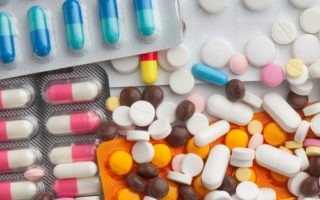
Scottish biologist Sir Alexander Fleming shaped the landscape of modern antibiotics with his discovery of enzyme lysozyme in 1921 and the antibiotic substance penicillin in 1928. Since this time, the widespread use of antibiotics has saved millions of people's lives across the globe and paved the way for scientific and technological progress. While antibiotics are strong enough to kill off bad bacteria in our bodies, they also have the power to eliminate the good bacteria in our guts.
How can antibiotics damage our gut flora?
Antibiotics are one of the most commonly prescribed medications in the world. As a result, we've likely all taken them at some point in our lives. Despite their prevalence in society, many researchers and dieticians are now worried about the harmful affects they can have on human health, especially in regards to gut flora.
In her book "Gut and Psychology Syndrome," Dr. Natasha Campbell-McBride wrote that antibiotics can damage our gut flora and have devastating impacts on our immune systems, which makes us more vulnerable to infections. If we are more susceptible to infections, we then have to take more antibiotics, causing the vicious cycle to continue.
"Antibiotics eliminate the good bacteria in our guts."
Specifically, Campbell-McBride dives into the different groups of antibiotics and the different impacts they have on our gut flora. She wrote about the penicillin category, which includes the popular Amoxicillin drug, damages two major groups of the body's beneficial bacteria: Bifidobacteria and Lactobacilli. She goes on to explain that these particular antibiotics allow bacteria that is normally only found in the bowel to move up to the intestines, which can cause people to develop IBS or other digestive disorders.
Next, she revealed how combining antibiotics can have lasting, stronger impacts than single drug use alone. Some of the worst damage is done, Campbell-McBride said, when the drugs are taken orally for a long period of time with a low dose. Whenever antibiotics are prescribed in high doses, the gut is left with empty areas that are populated by whatever bacteria, fungi or viruses get there first.
How can we heal our gut?
To keep the gut flora being overtaken or eradicated by bad bacteria, Campbell-McBride recommends taking a good probiotic supplement or changing your diet. This way, you can begin repopulating your gut with good bacteria and begin healing any damage caused by the antibiotics. On the GAPS Diet, participants must consume probiotic-rich, fermented foods, such as homemade yogurt, sauerkraut and kefir to rebuild their healthy gut flora. If you're experiencing gut troubles due to taking antibiotics, consider looking into the benefits of the GAPS Diet.
For additional information about the GAPS Diet and how to get started, you can consult with a Certified GAPS Practitioner and visit our website today!

